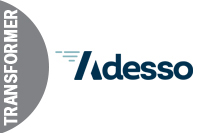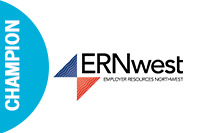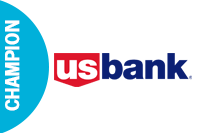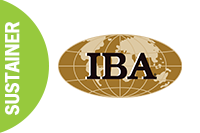Below is a general overview of service charges. It is not intended as legal advice, and is not an exhaustive discussion of the topic. If you have questions about any of this information, or about service charges in general, you are advised to consult an attorney.
FEDERAL LAW REGARDING SERVICE CHARGES
Federal law defines service charges as a compulsory charge for service. In contrast to service charges, guests decide whether to give tips, how much to give and who to give it them to, subject to a tip pool.
Under federal law, service charges:
- Are an employer’s property, to do with as the employer deems
- Are deemed wages when paid to an employee while tips are not seen as wages except to the extent they are used to meet the tip
- Therefore, service charges paid to employees may help an employer meet minimum wage requirements, but also may result in an increase in an employee’s regular rate for purposes of calculating overtime compensation, in comparison to if an employee received
- When paid to an employee, service charges may potentially allow an employee to meet the federal exemption from
- Are not subject to the income tax credit available for tips (for all FICA payments made on tips employee earned and reported above the tips needed to meet the tip credit).
WASHINGTON STATE LAW ON SERVICE CHARGES SINCE THE PASSAGE OF I-1433
Initiative 1433, which passed in November 2016, contains an express prohibition on the use of service charges to meet state minimum wage requirements.
WASHINGTON DISCLOSURE LAW (RCW 49.46.160)
Under Washington state law, employers who impose a service charge “related to food, beverages, entertainment, or porterage provided to a customer” must disclose, in an itemized receipt and in any menu provided to the customer the percent of the service charge that is payable directly to the employee or employees serving the customer.
This law defines “employees” as “non-managerial, nonsupervisory workers, including but not limited to servers, bussers, banquet attendants, banquet captains, bartenders, barbacks, and porters.”
This law defines “service charge” as “a separately designated amount collected by employers from customers that is for services provided by employees, or is described in such a way that customers might reasonably believe that the amounts are for such services.” It includes charges designated as a “service charge,” “gratuity,” “delivery charge,” or “porterage charge.”
ADDITIONAL CONSIDERATIONS
To help avoid potential claims for breach of contract (express or implied) or unjust enrichment, employers should consider advising employees in writing as to whether and to what extent service charges are paid to employees, and to obtain written acknowledgment regarding the same.
Frequently asked questions about service charges:
Q. What is a service charge?
A. A service charge is an amount that is automatically added to a customer’s bill for services rendered by the employer’s workers. Service charges include, but are not limited to, compulsory charges designated on the customer’s receipt as a “service charge,” “gratuity,” “delivery charge” or “portage charge.” For example, a restaurant that charges a compulsory (i.e.: not optional) gratuity for a table of six people or more secures a service charge, not a tip, on behalf of the employees who will receive the payment.
Q. How are service charges distributed to employees?
A. The employer collects the service charge and distributes to the employees who provided the service.
Q. What notice must a customer receive regarding service charges?
A. Washington law requires that employers disclose, in both the customer’s itemized receipt and any menu provided to the customer, the percentage of the service charge paid directly to the employee or employees serving the customer.
Q. Are service charges considered wages, tips, or a benefit for employees?
A. Service charges are non-tip wages, subject to wage-related taxes, including Social Security, FICA, and income tax withholding.
Q. Can service charges paid to the employee be used to offset the federal or state minimum wage?
A. No. Because Washington has a higher minimum wage and is more favorable to employees than federal law, state law governs in this instance. Under Washington law, any gratuities paid to employees, whether from a tip or a service fee, must be paid in addition to the state minimum wage.
Q. Can service charges paid to the employee be used to offset the minimum wage requirements of the City of Seattle Minimum Wage Ordinance (Council Bill No. 118098)?
A. It is an open the question about whether, or not, service charges can be applied against the difference between the state and Seattle minimum wage since the passage, in Nov. 2016, of I-1433, which raised the statewide minimum wage. Because of its passage, we would expect the City of Seattle to re-evaluate its current policy. As written, the City of Seattle Minimum Wage Ordinance does not directly address how restaurants should treat service charges with respect to compliance with the ordinance’s minimum wage requirements. However, the ordinance defines “minimum wage” as “all wages, commissions, piece-rate and bonuses actually received by the employee and reported to the Internal Revenue Service.” The rules implementing Seattle’s minimum wage ordinance clarified that service charges paid to employees can be viewed as a commission. It’s important to understand the conditions under which this can apply, and we recommend reviewing the Seattle Minimum Wage Guide – and consulting with legal and/or financial team. As stated in response to Question 4, above, service charges are considered wages paid to the employee that are subject to wage-related taxes, and are reported by the employer to the IRS. Accordingly, there is a convincing argument that – for the purposes of compliance with the City of Seattle Minimum Wage Ordinance – service charges can be considered part of the employee’s “minimum wage” compensation. Employers are cautioned, however, that at no time can the employee’s minimum wage – without taking services charges into consideration – fall below the state minimum wage.
Q. What are service charges for employers?
A. Services charges are part of the employer’s gross receipts.
Q. What are the tax implications for using service charges?
A. Federal, state, and local law require employers to collect, report and pay taxes on service charges as part of a business’s gross receipts. Under federal law, an employer cannot use the amounts paid as service charges to qualify for an IRC Section 45B tax credit. Under Washington law, employers are required to pay retail sales tax on service charges while both Washington and the City of Seattle require businesses to pay business and occupation (“B&O”) tax on service charges. For employees, service charges are part of their regular, taxable wages from which employers must withhold Social Security, FICA and income taxes.
Q. If a business distributes service charges to employees, can it discontinue doing so or change the amount it distributes in the future?
A. Employers may enact or discontinue service charge programs at their discretion. Federal, state and local laws do not require employers to charge guests a service charge. However, when an employer does assess a service charge, it must adhere to the outlined laws, regulations, and standards. For example, Washington law requires employers to disclose on either an itemized receipt or on a menu what percentage of an automatic or contracted service charge is actually paid or payable to employees serving the guest.
Q. Are there other concerns employers should be aware of in relation to service charges?
A. Employers may be able to use service charges as positive recruitment and retention tools. Employees may prefer to work for companies and in positions where they are guaranteed a percentage of sales for the service they provide to customers. Service charges may also increase the value of benefits employees receive when those benefits are computed on an employee’s total wages, such as 401k employer contributions or short-term disability. This positive impact on wages and benefits may help to ensure greater employee satisfaction, reducing recruitment and turnover costs. The downside for employers is that service charges may increase tax and reporting burdens for businesses, and may disqualify businesses from certain tax credits, such as the IRC Section 45B tax credit for tipped employees. Service charges may also increase the value, and therefore, the expenses of benefits that may be provided to employees.
Examples of Disclosure Statements: Restaurant Menu
A(n) % service charge on the total bill will be automatically added for parties of or more, plus sales tax. Service staff receive % of this added service charge.
Catering Menu
Beverage items, service charge and sales tax are not included in the listed prices. A(n) % service charge on the total bill will be automatically computed and added to the overall invoice for food and beverage plus sales tax.
% of the computed service charge is distributed to non-managerial service staff. Food Beverage Total food & beverage Service charge @ % Pre-tax total % of the service charge is distributed to non-managerial service staff.
Porterage Fees
Client agrees to pay $ porterage fee per room for bell staff to deliver [item(s) to be delivered]. Bell staff/Porters receive % of the porterage fee.
References:
29 C.F.R. §531.55
29 C.F.R. 531.55(b)
IRS Rev. Rul. 2012-18 (June 25, 2012)
IRS Rev. Rul. 59-252, 1959-2 C.B. 215
RCW 49.46.160(1) RCW 49.46.160(2) (c)
Seattle Municipal Code §14.19.010(Q) (set forth in Council Bill No. 118098, Section 2) WAC 458-20-124(11)
WAC 458-20-166(4)(b)(i)
Washington State Department of Labor and Industries Administrative Policy No. ES.A.3
If you have any further questions about this topic or others, see the Department of Labor & Industries’ Help for Small Business page at http://www.lni.wa.gov/Main/SmallBusiness/.
Rev. 1/2/18
This article is an excerpt from the Handbook for Excellent Restaurant Operations (HERO), published by the Washington Hospitality Association. Want a hard copy of the whole manual? It’s one of the many benefits of becoming a member! Find out more about joining the Washinton Hospitality Association here.



















![[Class, May 20] ServSafe Manager, Kent](https://wahospitality.org/wp-content/uploads/2018/07/CALEND1-150x150.png)








